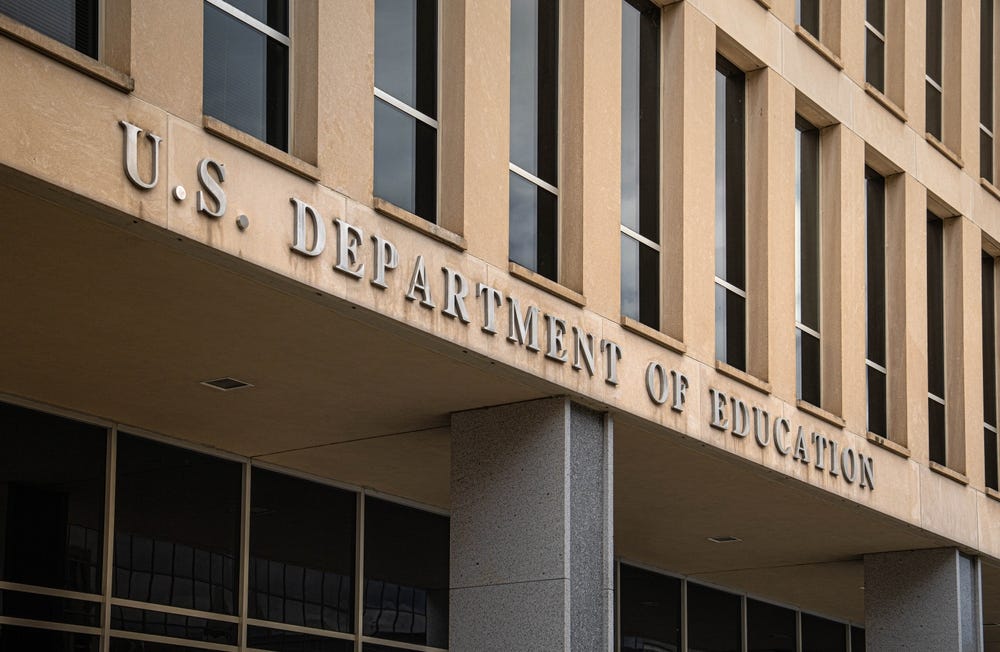|
The Department of This Important Thing
What we hack away indiscriminately says a lot about what we value.
Back during the first Trump administration—the one that faded too quickly from some people’s memories, apparently—a man wrote a letter to the editor of my local paper, the Minot Daily News. I don’t remember the subject of the letter, but I do remember that it was well-structured and clearly written and that I agreed with the points the writer made. I thought he was probably the kind of person I could meet for a beer or a coffee and talk about politics or literature. I also thought most people would read only a sentence or two of his letter.
He began with a situation faced by a character in one of those novels you feel like you should have read by now. The kind of novel you would be more likely to read in college than in high school. It might have been a Henry James or James Joyce novel. Joseph Conrad’s Lord Jim comes to mind, but I may be conflating the writer’s letter to the editor with Herman Wouk’s The Caine Mutiny, which definitely refers to Lord Jim. At any rate, I’m pretty sure that it was a novel written by a man somewhere around the Modernist period—except that it might have been from Pride and Prejudice by Jane Austen.¹
If you are now thinking that I am a fancy-pants literary snob out to prove (brag) that I have read Lord Jim and The Caine Mutiny and am, furthermore, familiar with the Modernist period and Henry James and his brother, William James, and a bunch of other dead white guys and Jane Austen and Mark Twain, who said that every time he read Pride and Prejudice, he wanted to dig Jane Austen up from the grave and beat her over the skull with her shin-bone—which indicates that he read Pride and Prejudice numerous times—then you see the problem with starting a letter to the editor of a local newspaper not located on a staid college campus with a somewhat esoteric literary reference or a sentence as long as this one. Save that stuff for your letter to The New Yorker or Poets & Writers, the one you must promise will not begin, “I read with interest. . .”²
Now that the author of that letter to the editor of the Minot Daily News and I have established that we are astonishingly well-read (like no one has ever seen before—English professors are amazed—declares the President) and like to sip Scotch and talk about English literature or sip vodka and talk about Russian literature, either of which could devolve into uproarious takes on Alexander Pushkin’s foot fetish³, we can turn to something we have in common with a much larger subset or even a strong majority of Minot Daily News readers and other North Dakota voters: a belief that education is important, and reading is a critical skill.
Republican politicians must think education is important, because they keep writing legislation about it. They are even concerned about school infrastructure, like (almost exclusively) bathrooms. They talk about getting back to the basics in K-12 education, by which they mean either just the three R’s or just reading and math. Like Americans across the political spectrum, they would like to see reading scores back at pre-pandemic levels.⁴ Even conservative-plus (the CON+ community: conservative plus a bit fascist) keyboard warriors will sometimes argue that another person ought to read a book or do their own research, both of which imply some degree of reading comprehension.
(Most people who tell you they did their own research—Robert F. Kennedy, Jr., for example—are not lying; they are just exceptionally bad at research.)
If the importance of reading and education and the need to improve them are not in dispute, shouldn’t we have some associated national goals and a robust Federal Department of This Important Thing staffed with experts focused on meeting those goals? Even if we are leaving education reform to the states, shouldn’t we support those reform efforts with Federal grants administered by those experts and based on certain criteria? I think so.
It should be easy to create some uncontroversial education goals. The criteria for Federal funding of state education reform efforts would need strong bipartisan buy-in up front, or they could become fodder for the partisan political-outrage machine. Specific programs would need the support of most parents, teachers, and voters, because even a fantastic program could become controversial if enough parents wrote Facebook posts about how bad it is and asking why we can’t go back to the methods that worked so well when they were students.
Blindly chopping away at the Department of Education is not going to help the states or make anything more efficient. It is just going to exacerbate existing disparities in education from state to state. And anyone who has ever told another person to read a book or do their own research should recognize that “send education back to the states” is a slogan, not a solution. It is vague and resounds of “make it somebody else’s problem,” and “I don’t take responsibility at all.”
Reading education is not my specialty, so I have more opinions than evidence-based solutions. I was lucky enough to fall in love with reading from my very first lessons, so I think that one principle of reading education ought to be that it makes students see reading as an enjoyable activity. I’ll leave the rest to the experts. I do know that it is much easier to teach science to students who are strong readers. Once, while on a long-term substitute teaching job, I had a new middle school student join one of my classes. He read at a second-grade level (poor homeschool situation) and needed resources—paraeducators and an individualized education program—that were supported by Federal dollars. Teachers regularly differentiate instruction for different learning styles and abilities, but some gaps are hard to bridge without extra help.
I would love to see some good-faith discussions about improving education and creating a more literate United States of America. If people on the right can stop their acronym-based attacks on public education, I can suppress my urge to talk about the books I love, and the kinds of books students should read before they graduate high school. I might even stop making fun of their library legislation. Public education is a public good, and reading is a fundamental skill. You need it to do your own research. We need it so people won’t be Googling things like “how do I change my vote?” or “did Joe Biden drop out?” or “what is a tariff?” after the next election.
Finally, will somebody please tell everyone’s favorite Senate Minority Leader, Chuck Schumer, that he didn’t need to inform the people that Republicans had handed him a Hobson’s choice? Fifth graders have mostly never heard of a Hobson’s choice. Don’t try to sound smarter than a fifth grader, Democrats. And definitely do not start letters to the editor with anecdotes from literary classics.
Austen was neither male nor writing anywhere near the Modernist period.
Would you have written a letter about something you read without interest?
A real thing, on which even Dostoyevsky commented. And yes, this is a foot-fetish footnote.
They are much more concerned with blaming post-pandemic learning loss on “the woke agenda,” of course.
You’re currently a free subscriber to Trygve’s Substack. For the full experience, including access to the archives, upgrade your subscription.

